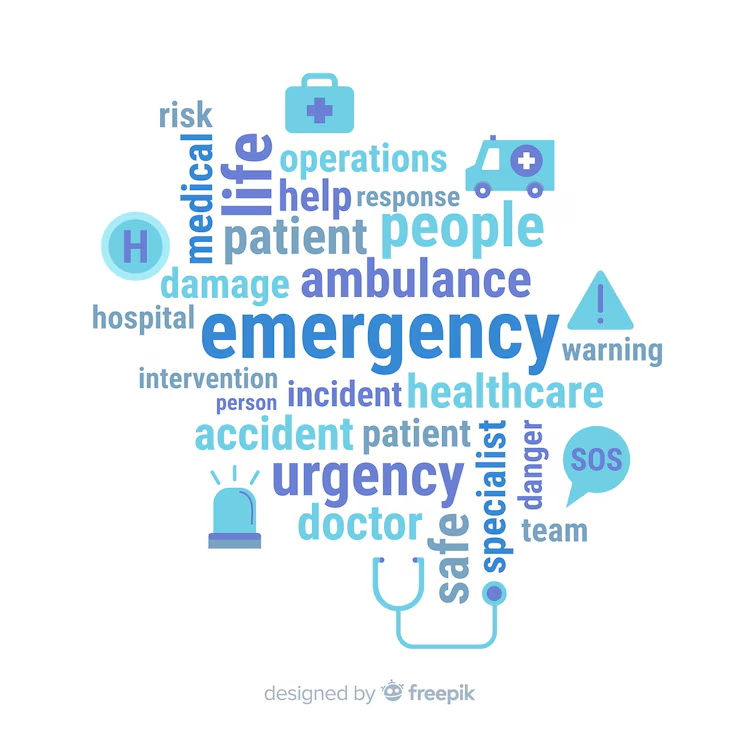As a pre-med student, understanding medical terminology is essential for success in your future healthcare career. Whether you’re studying for exams, working in a clinical setting, or conducting research, having a solid grasp of medical terms will help you communicate effectively with colleagues and patients.
By familiarizing yourself with these key terms early on, you’ll be better equipped to navigate the complex world of medicine with confidence and precision. So, let’s dive in and explore the essential glossary of medical terminology that will help you excel in your pre-med studies and beyond.
The 10 Terms You Must Know
1. Anatomy
Anatomy is the study of the structure of the human body. Pre-med students must have a solid understanding of anatomy to grasp how the body functions and how diseases can affect different parts. Medical professionals need to be able to identify and locate different organs and systems within the body.
2. Physiology
Physiology is the study of how the body functions. It explores how different organs and systems work together to maintain homeostasis. Pre-med students need to understand physiology to comprehend the processes that keep the body alive and healthy.
3. Pathology
Pathology is the study of disease. Pre-med students must be familiar with the causes, mechanisms, and effects of various diseases on the body. Understanding pathology is crucial for diagnosing and treating illnesses as a medical professional.
4. Pharmacology
Pharmacology is the study of drugs and their effects on the body. Pre-med students need to have a basic understanding of pharmacology to prescribe medications safely and effectively. Knowing how different drugs interact with the body is essential for providing quality patient care.
5. Epidemiology
Epidemiology is the study of how diseases spread and affect populations. Pre-med students must understand epidemiology to track and control the spread of infectious diseases. Knowing how diseases are transmitted helps medical professionals implement preventative measures and protect public health.
6. Diagnostic Tests
Diagnostic tests are procedures used to identify diseases and conditions in patients. Pre-med students need to be familiar with different diagnostic tests, such as blood tests and imaging studies, to interpret results accurately. Understanding diagnostic tests is essential for making accurate diagnoses and developing treatment plans.
7. Prognosis
Prognosis is the likely outcome of a disease or condition. Pre-med students must understand how to assess a patient’s prognosis based on their medical history and current health status. Knowing the prognosis helps medical professionals communicate effectively with patients and determine the best course of treatment.
8. Treatment Modalities
Treatment modalities are the different approaches used to manage and cure diseases. Pre-med students need to be familiar with various treatment modalities, such as medications, surgery, and therapy, to provide comprehensive care to patients. Understanding treatment options is crucial for developing individualized treatment plans tailored to each patient’s needs.
9. Medical Ethics
Medical ethics are the moral principles that guide the practice of medicine. Pre-med students must be aware of ethical issues in healthcare, such as patient confidentiality and informed consent. Understanding medical ethics is essential for maintaining professionalism and integrity as a medical professional.
10. Evidence-Based Medicine
Evidence-based medicine is the practice of using scientific research and clinical expertise to make informed healthcare decisions. Pre-med students need to understand how to evaluate medical literature and apply evidence-based practices in patient care. Incorporating evidence-based medicine into practice ensures that medical professionals provide the most effective and up-to-date treatments for their patients.
Conclusion
From understanding the difference between acute and chronic illnesses to knowing the importance of vital signs, these terms are foundational to your education and practice as a healthcare provider. By familiarizing yourself with these key terms early on, you will be better prepared to excel in your pre-med studies and beyond.
As you continue on your journey towards becoming a healthcare professional, remember to continually expand your medical vocabulary and stay up-to-date on the latest terminology in the field. By mastering these essential medical terms, you will be well-equipped to navigate the complex world of medicine and provide the best possible care to your future patients.
